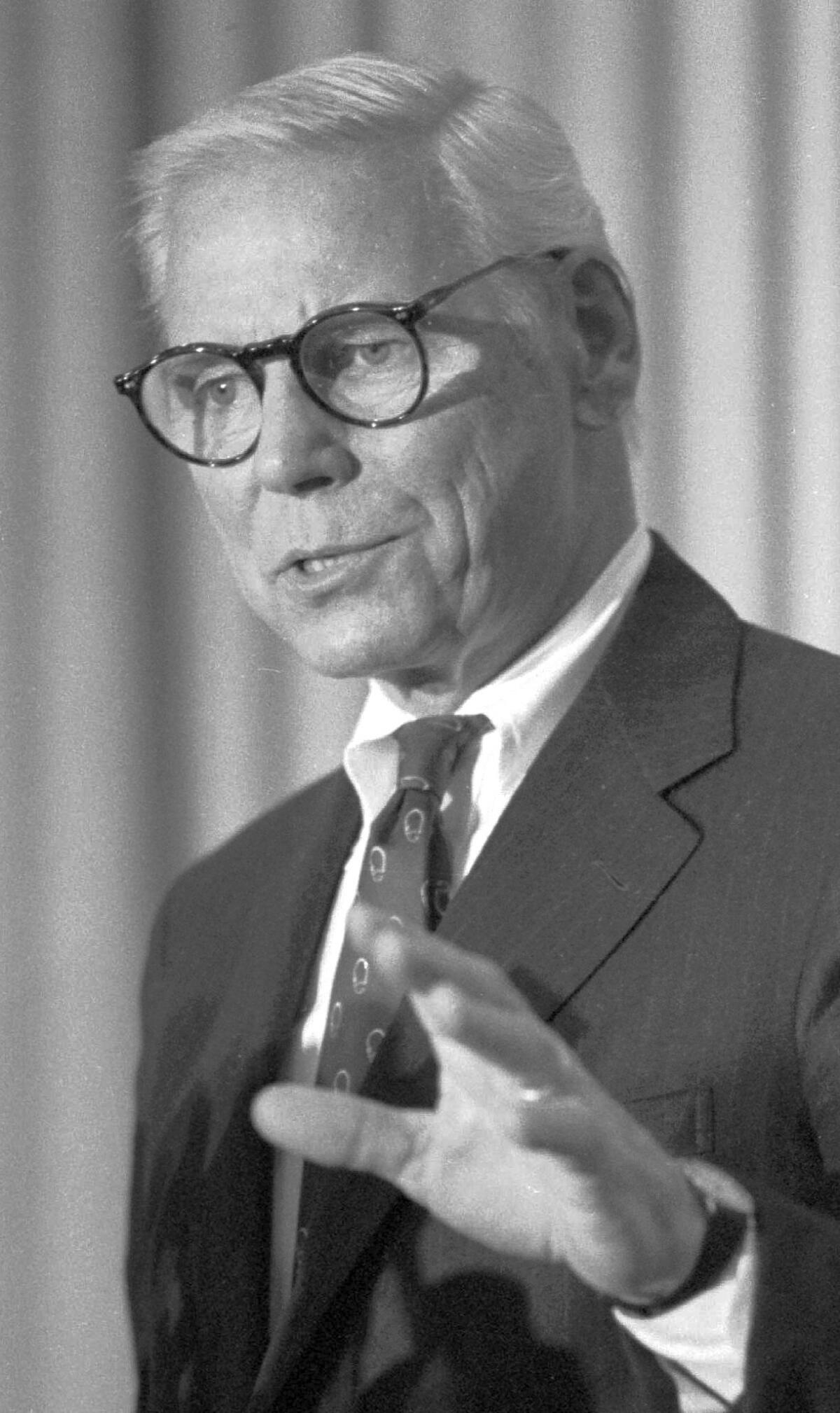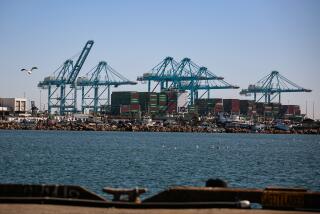Warren Anderson dies at 92; Union Carbide chief during Bhopal disaster

Warren M. Anderson, who headed Union Carbide Corp. when a chemical leak killed thousands of people in Bhopal, India, in 1984, has died in Florida at 92.
Anderson’s death was not announced by his family but was confirmed Friday by the Associated Press through public records. The records say Anderson died at a nursing home in Vero Beach, Fla., on Sept. 29. No cause of death was given.
Anderson ran Union Carbide when, on the morning of Dec. 3, 1984, a pesticide plant run by one of its subsidiaries leaked about 40 tons of deadly methyl isocyanate gas into the air of the Indian city of Bhopal, killing about 4,000 people. Many more died in the following months, bringing the estimated death toll to 15,000.
In all, at least 500,000 people were affected, with either direct injuries or birth defects blamed on the leak, the Indian government says.
Just after the disaster, Anderson traveled to India, where he was briefly arrested. He left the country while free on bail.
But the disaster, and its lingering effects, remains an open wound in India, where many consider Union Carbide’s $470-million settlement with the Indian government an insult. Union Carbide is now a wholly owned subsidiary of the Dow Chemical Co.
The Indian government made a renewed push to extradite Anderson, then 90, from the United States in 2011, but did not succeed. Prosecutors wanted to try him on culpable-homicide charges.
In a 2009 interview with the Associated Press, his wife, Lillian, said: “He’s been haunted for many years” by the disaster.
The company has maintained that the leak was caused by employee sabotage. Activists blame lax safety standards or faulty plant design.
More to Read
Start your day right
Sign up for Essential California for the L.A. Times biggest news, features and recommendations in your inbox six days a week.
You may occasionally receive promotional content from the Los Angeles Times.






